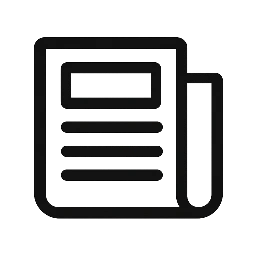The Ultimate Guide to Cement Brick Machines: Types, Uses, and Benefits
In the construction industry, efficiency and durability are paramount. Cement brick machines have revolutionized how builders produce high-quality bricks for various projects. These machines streamline the manufacturing process, ensuring consistent output while reducing labor costs. Whether you’re a contractor or a DIY enthusiast, understanding these devices can significantly enhance your construction workflow.
Types of Cement Brick Machines
Cement brick machines come in various models to suit different production needs. Manual machines are ideal for small-scale projects, offering affordability and ease of use. Semi-automatic models balance automation with manual control, perfect for medium-sized operations. Fully automatic machines, on the other hand, are designed for large-scale production, featuring advanced systems for mixing, molding, and curing bricks with minimal human intervention.
Automated Block Production
Automation in brick manufacturing ensures precision and speed. These systems integrate hydraulic pressure and vibration technology to compact raw materials into dense, uniform bricks. By using a reliable Cement brick machine, businesses can achieve higher output rates while maintaining structural integrity. This makes them a smart investment for expanding operations.
Common Uses of Cement Brick Machines
From residential buildings to commercial complexes, cement bricks are versatile construction materials. They are commonly used for walls, pavements, and landscaping features due to their strength and weather resistance. With a cement brick machine, you can produce custom-sized bricks tailored to specific project requirements, enabling creative designs and efficient resource utilization.
Eco-Friendly Construction Solutions
Modern cement brick machines support sustainable practices by utilizing recycled materials like fly ash or crushed aggregates. This not only reduces environmental impact but also lowers production costs. Additionally, these machines minimize waste through precise material measurement, aligning with green building standards.
Key Benefits of Investing in a Cement Brick Machine
Owning a cement brick machine offers numerous advantages, including cost savings, scalability, and quality control. By producing bricks on-site, you eliminate transportation expenses and delays. Moreover, automated features reduce the risk of human error, resulting in durable bricks that meet industry standards. This investment pays off through long-term reliability and enhanced project timelines.
Boosting Productivity with Advanced Features
Advanced models include programmable logic controllers (PLCs) and real-time monitoring systems. These features optimize production cycles, allowing operators to adjust settings for different brick types effortlessly. As a result, businesses can scale up output without compromising on quality, staying competitive in the market.
Frequently Asked Questions
What maintenance does a cement brick machine require?
Regular cleaning, lubrication, and part inspections are essential to ensure longevity. Follow the manufacturer’s guidelines for routine checks.
Can I use alternative materials in a cement brick machine?
Yes, many machines support mixtures with sand, gravel, or industrial by-products, provided they are compatible with the equipment’s specifications.
How do I choose the right machine for my needs?
Consider factors like production volume, automation level, and budget. Consulting with experts can help you select a model that aligns with your goals.
Take the Next Step in Construction Innovation
Ready to elevate your construction projects? Explore our range of high-performance cement brick machines and discover how they can transform your workflow. Contact us today for a

Leave a Reply